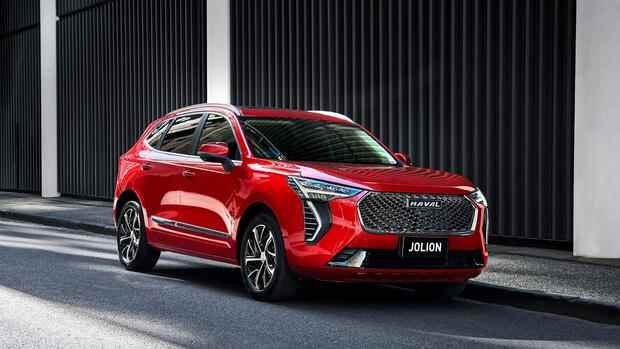The crossover from the Chinese manufacturer Haval is the best-selling foreign vehicle in Russia.
Dusseldorf The sanctions and the withdrawal of many Western brands have left their mark. Compared to the previous year, the number of cars sold fell by two thirds – only around 42,000 vehicles were registered, reports the Russian industry association AEB Automobile.
Brands such as Volkswagen sold only 534 vehicles in August, 92 percent fewer than in the same month last year, while Audi sold 108 vehicles, down 93 percent.
But compared to the previous months, this is even a recovery. Compared to July 2022, sales increased by almost 29 percent. Because while Western brands such as Renault, Toyota and VW are hardly selling any cars, Russian and Chinese manufacturers are making significant gains.
Haval in particular uses the momentum. The Great Wall Motors brand increased its sales by 26 percent to almost 3,000 vehicles and is now the third largest brand in Russia with a market share of 7.2 percent. A year ago, the Chinese still had a share of 2.1 percent.
Top jobs of the day
Find the best jobs now and
be notified by email.
Haval’s Jolion crossover was the best-selling foreign model in Russia in August. Directly behind it in the sales ranking is the crossover Coolray from Geely. The Chinese group, which also owns brands such as Polestar and Volvo, is benefiting massively from the withdrawal of Western brands. Although Geely sales fell slightly by eight percent to around 2000 vehicles, the market share doubled to 4.8 percent.
Chery from China wants to double sales
Figures from Chery are not included in the statistics. The state automaker from China has been pursuing big plans in Russia for some time. The Russian news agency Tass recently reported that the Chinese are planning a new plant in Russia. The manufacturer wants to sell 80,000 to 100,000 vehicles this year. That would be more than a doubling of sales compared to the previous year.
The advance of the Chinese is not surprising. Providers have been investing in Russia for years. Haval’s investments alone will total $500 million in 2021, reports independent Russian auto analyst Sergey Burgazliev. “The image of Chinese brands has changed fundamentally and is much more positive than it was five years ago,” Burgazliev said a few weeks before the outbreak of war.
>> Read here: E-car manufacturer BYD: Buffett sells shares, price falls
The role of the Korean providers is ambivalent. In 2021, Kia and Hyundai together had a market share of 22.5 percent, the two brands build different models together in two Russian factories. So far, they have not officially joined sanctions.
However, delivery problems hamper production. Kia recently sold around 4000 vehicles in Russia – 77 percent less than in the previous year, Hyundai came to around 2900 vehicles – at least 44 percent less.
More: Chinese car manufacturers want to conquer Europe – but they may be backing the wrong models
